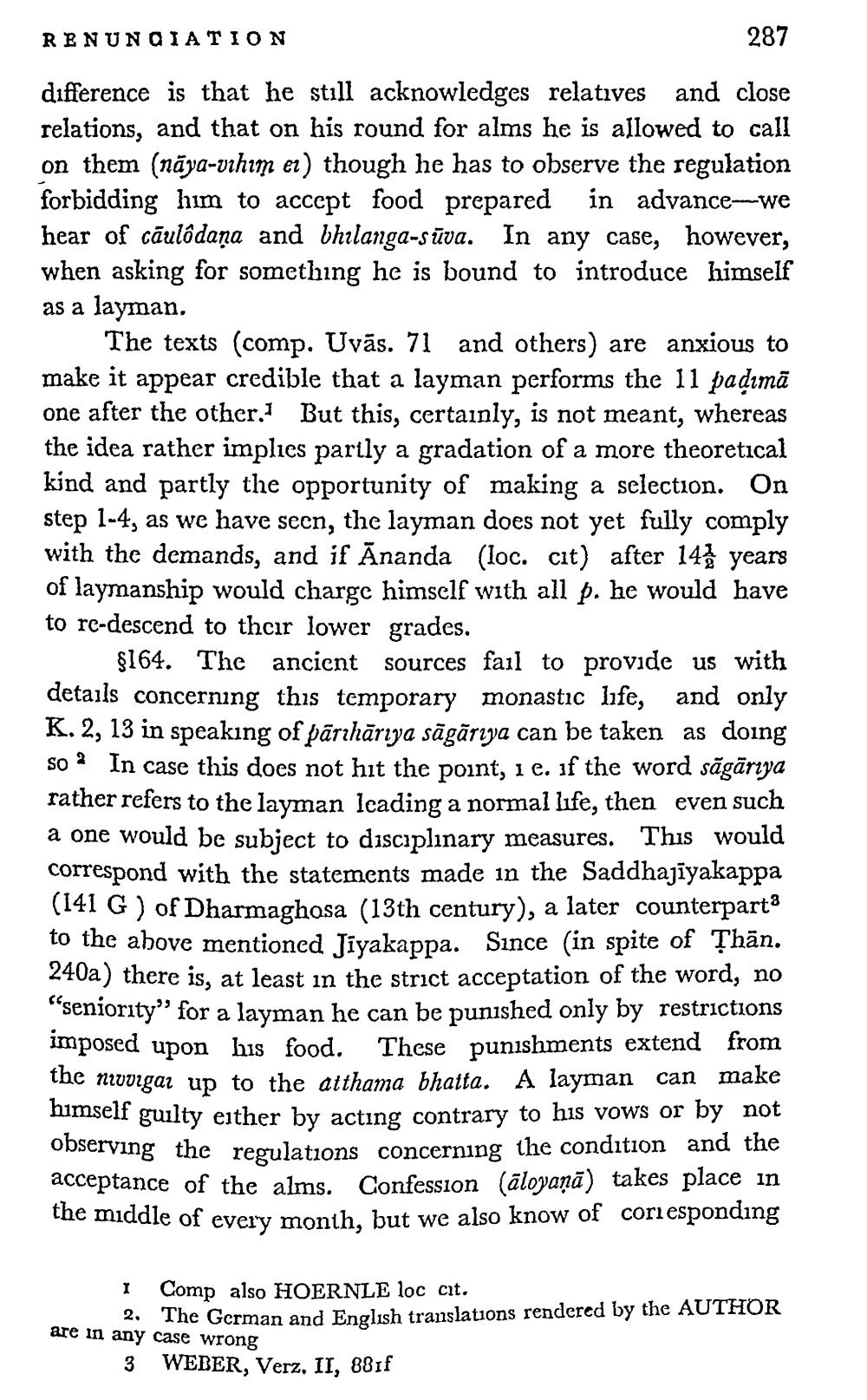________________
RENUNCIATION
287
difference is that he still acknowledges relatives and close relations, and that on his round for alms he is allowed to call on them (nāya-vihim er) though he has to observe the regulation forbidding him to accept food prepared in advance--we hear of caulôdaña and bhilanga-sūva. In any case, however, when asking for something he is bound to introduce himself as a layman.
The texts (comp. Uvās. 71 and others) are anxious to make it appear credible that a layman performs the 11 padımā one after the other. But this, certainly, is not meant, whereas the idea rather implies partly a gradation of a more theoretical kind and partly the opportunity of making a selection. On step 1-4, as we have seen, the layman does not yet fully comply with the demands, and if Ānanda (loc. cit) after 14 years of laymanship would charge himself with all p. he would have to re-descend to their lower grades.
$164. The ancient sources fail to provide us with details concerning this temporary monastic life, and only K. 2, 13 in speaking of pārihārıya sāgāriya can be taken as doing so à In case this does not hit the point, 1 e. If the word sāgāriya rather refers to the layman leading a normal life, then even such a one would be subject to disciplinary measures. This would correspond with the statements made in the Saddhajīyakappa (141 G) of Dharmaghosa (13th century), a later counterpart3 to the above mentioned Jiyakappa. Since (in spite of Thān. 240a) there is, at least in the strict acceptation of the word, no "seniority” for a layman he can be punished only by restrictions imposed upon his food. These punishments extend from the nivvigar up to the atthama bhatta. A layman can make himself guilty either by acting contrary to his vows or by not observing the regulations concerning the condition and the acceptance of the alms. Confession (āloyaņā) takes place in the middle of every month, but we also know of cori esponding
I Comp also HOERNLE loc cit.
The German and English translations rendered by the AUTHOR are in any case wrong
3 WEBER, Verz. II, 881f




